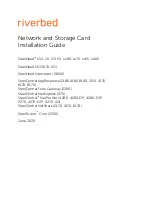GD32VF103 User Manual
281
Figure 15-35. Normal mode, internal clock divided by 1
CK_TIMER
CEN
PSC_CLK = TIMER_CK
CNT_REG
Reload Pulse
17
18
19
20
21
22
update event generat e(UPG)
23
00
01
02
03
04
05
06
07
Update event (UPE)
SMC [2:0] == 3’b111 (external clock mode 0). External input pin is selected as timer clock
source
The TIMER_CK, which drives counter
’
s prescaler to count, can be triggered by the event of
rising or falling edge on the external pin TIMERx_CH0/TIMERx_CH1. This mode can be
selected by setting SMC [2:0] to 0x7 and the TRGS [2:0] to 0x4, 0x5 or 0x6.
And, the counter prescaler can also be driven by rising edge on the internal trigger input pin
ITI0/1/2/3. This mode can be selected by setting SMC [2:0] to 0x7 and the TRGS [2:0] to 0x0,
0x1, 0x2 or 0x3.
SMC1== 1’b1 (external clock mode 1). External input ETI is selected as timer clock
source
The TIMER_CK, which drives counter
’
s prescaler to count, can be triggered by the event of
rising or falling edge on the external pin ETI. This mode can be selected by setting the SMC1
bit in the TIMERx_SMCFG register to 1. The other way to select the ETI signal as the clock
source is setting the SMC [2:0] to 0x7 and the TRGS [2:0] to 0x7. Note that the ETI signal is
derived from the ETI pin sampled by a digital filter. When the ETI signal is selected as the
clock source, the trigger controller including the edge detection circuitry will generate a clock
pulse on each ETI signal rising edge to clock the counter prescaler.
Prescaler
The prescaler can divide the timer clock (TIMER_CK) to a counter clock (PSC_CLK) by any
factor ranging from 1 to 65536. It is controlled by prescaler register (TIMERx_PSC) which can
be changed ongoing, but it is adopted at the next update event.


















